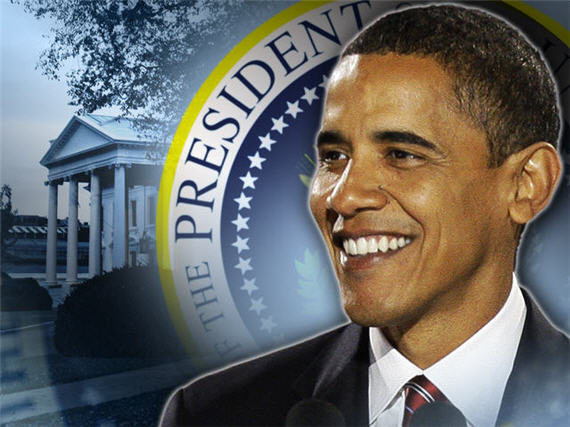Army Spokesman: Don’t Criticize President Over Sequester
Reminding government employees that they are employees of the government is suddenly controversial.
Reminding government employees that they are employees of the government is suddenly controversial.
Weekly Standard‘s Daniel Halper has the story (“Army Spokesman Reminds Employees and Civilians Not to Criticize Commander in Chief“):
Stephen D. Abney, the chief public affairs official for the Army’s Joint Munitions Command, recently sent a message to all 6,000 employees he speaks for: Don’t criticize President Barack Obama or any political party to members of the press. The message was received by civilian contractors as well.
“It’s not meant for contractors… It wasn’t intended for contractors,” said Abney of the email, which details how folks should deal with the press because of sequestration (mandatory spending cuts).
[…]
The message was “intended to remind our employees that they are not spokespersons for the government,” said Abney on the phone today.
Abney says he was just reminding employees that the commander in chief—President Barack Obama—is their boss.
Which, it turns out, in the case of uniformed military personnel and civilian employees of the DoD, he is. The full text of the letter doesn’t add any spark; indeed, it defuses the story even further:
Subject: Sequestration – Media Tips
To JMC employees,
Because of media interest in sequestration and furlough, you may be approached or contacted by a reporter at some point and asked to comment.
If you don’t wish to speak with a reporter, politely decline.
If you agree to be interviewed, remember that you’re expressing your personal opinion, not that of anyone else – and certainly not the opinion of JMC or the Army.
Avoid giving an answer that might be perceived as criticism of the Commander in Chief or any political party.
If you’re asked to provide an official statement, refer the reporter to JMC PAO, the official spokesperson for the command. Their number is [REDACTED].
No, this isn’t, as some commenters seem to think, tantamount to fascism or some sort of cult of personality. Rather clearly, Abney is worried that employees none too happy with the prospect of taking unpaid leave because the ninnies in Washington can’t get their act together are going to spout off in the press, with the most unprofessional quotes likeliest to see print or airtime.
Notice, too, the caveat “Avoid giving an answer that might be perceived as criticism of the Commander in Chief or any political party.” Given the voting behavior of federal employees, Abney is likely as worried that employees are going to go public with complaints about Congressional Republicans being responsible for the whole mess as with gripes about the president. Both of which are healthy signs of a democracy. Neither of which, however, are permissible conduct by government employees, especially military personnel.
UPDATE: While the uniformed military face all manner of restrictions on their speech, all federal employees—and many state government employees whose positions are funded by the federal government—are covered under the Hatch Act. Most of them, including most DoD civilians, are Less Restricted Employees and given wide berth in their political expression so long as it’s done on their own time and there’s no reasonable basis to conclude that they’re speaking in their official capacity. Others, including employees of most intelligence and law enforcement agencies and all Senior Executive Service employees, are Further Restricted Employees who face quite onerous restrictions on their activity and can’t donate to campaigns or parties, wear bumper stickers, comment on a blog, or even forward emails or social media postings that advocate for a party or candidate.







Remember 10 years ago, when the GOP’s hardcore nutcases would’ve wanted to string up any members of the military who would dare criticize the CINC? It is a credit to the nation we no longer act that way. Yet it is to the GOP’s everlasting shame that happened in the first place.
Don’t these folks ever get tired of being outraged about everything all the time? I find it exhausting to keep reading about the Outrage of The Day. Their cortisol levels must be through the roof.
Well, if it weren’t for hysterical hyperbole what exactly would the media-based chattering classes do on daily bases? They don’t sell anything but their thoughts. They don’t manage anything but their pet peeves. It’s not as if they actually perform utilitarian services for anyone. They don’t build anything. They don’t design anything. And there’s only so much that Paxil and Zoloft can accomplish for them.
Although what’s sort of funny about this — in the vein of ironic farce — is that if at any point between Jan. 2001 and Jan. 2009 a similar memo had been issued the young, inexperienced and altogether loopy left-wing chattering classes would have gone into such DSM-level insanity mode it literally would have resulted in EEG flat lines.
That aside, I don’t see any issue with this memo. Obviously it was not appropriate for civilian contractors, but the spokesman himself already acknowledged as much and declared it wasn’t intended for their eyes. So overall as I see it it’s a case of ho harm, no foul. Certainly not something over which to enter high dudgeon mode.
Doh. “no harm, no foul,” that is.
The writer may request this of civilian workers but may not take any action should the civilian fail to take this advice. Notice the author did not reference anything that could be used to back up this request. The government may not restrict the 1st amendment rights of civilian employees. The author was a douche for sending this out to any non-military personnel.
And yet the very same chattering class stood by while that very same administration manufactured evidence to sell a war of choice…arguable the biggest foreign policy blunder in our history.
Something doesn’t ring true…either your comment…or the facts.
Based on past performance I’m going to assume your comment is erroneous.
@Gold Star for Robot Boy:
Remember 10 years ago, when the GOP’s hardcore nutcases would’ve wanted to string up any members of the military who would dare criticize the CINC?
Actually, I remember the wingnuts wanting to string up journalists for daring to criticize President Bush. Funny how much things can change in just a few short years.
@Jack:
The writer may request this of civilian workers but may not take any action should the civilian fail to take this advice. Notice the author did not reference anything that could be used to back up this request. The government may not restrict the 1st amendment rights of civilian employees. The author was a douche for sending this out to any non-military personnel.
If you think you can’t get fired for speaking on behalf of your employer when you are explicitly forbidden to do so, you’re probably unemployed.
@mantis:
Actually, no. the wingnuts still want to string up journalists for criticizing Bush the Younger. They just don’t believe any other living President, current or former, deserves the same courtesy.
@Jack: The Hatch Act phoned and wants you to check in.
@Jack:
Actually, not so much:
s
The funny thing is that hatch act violations used to be automatic termination until very recently. Now it’s any thing from a reprimand up to termination. The hatch act is pretty ridiculous but I don’t see any of outraged people congratulating Obama signing a law that makes the penalties more sane.
Second that. When I have worked for Fortune 500 companies, there were frequent reminders from corporate communications that speaking on behalf of the company by persons who were not designated company spokespersons was grounds for dismissal.
@Tsar Nicholas: “Certainly not something over which to enter high dudgeon mode.”
Nice of you to come to this conclusion after four paragraphs of inane blather in which you, once again, declare how stupid everyone in the world is besides you.
Here’s a hint: If you don’t have anything to say, shut up.
And if you do have something to say, but it’s exactly the same incoherent crap you’ve already posted 20 times this week, see the advice above.
@wr: Oh, sorry, only three paragraphs this time. I think my eyes were crossing with the boredom…
@mantis: The employer in this case is the government and no, they cannot fire you for speaking out against the president. This is not about a private company. There is nothing in the Hatch Act that says you cannot speak out against the CIC.
@anjin-san: Again, the emoyer in this case is the government and they cannot fire you for speaking out against the president. Congress shall make no law respecting an establishment of religion, or prohibiting the free exercise thereof; or abridging the freedom of speech, or of the press; or the right of the people peaceably to assemble, and to petition the Government for a redress of grievances.
@James Joyner: James, the Hatch Act doesn’t say you cannot disparage the president.
It doesn’t fit. Next?
@rudderpedals: You alma mater called and wants to give you a rebate beacuse they definately didn’t earn their money.
This is one area in which the principle “better to ask for forgiveness than for permission” doesn’t apply. Some years above, I was misquoted by the Chicago Tribune in a news story. This led to a rocket from a former president of the association and a not-so-gentle reminder from the executive director to clear all public statements with her office.
@Jack:
So what did you say? “He doesn’t want a rebate”?
@Jack:
“Disparaging the President” can be difficult to differentiate from “partisan political activity” in favor of a particular party or candidate (namely, the opposition party). It _is_ forbidden. Chanting the First Amendment like it’s a set of magic words won’t make reality – or case law – conform to your desires.
@ Jack
Everyone has freedom of speech. Freedom of speech does not mean freedom from consequences.
Do you still live with your parents or something?
@Jack:
Whoa whoa whoa.
You don’t get to just wave off the Hatch Act. The existence of the hatch act pretty much entirely refutes this nonsense you wrote:
Yes, they can, and they do. A federal employee can’t work a phone bank for a candidate. They can’t wear an “XXX for Office” shirt at work. They can’t say “I’m voting for XXX because he’s in my best interests as a federal employe.”
@Jack:
The employer in this case is the government and no, they cannot fire you for speaking out against the president. This is not about a private company. There is nothing in the Hatch Act that says you cannot speak out against the CIC.
A demonstration of your ignorance is not an argument. Not a persuasive one, anyway.
Jack, the First Amendment is not a get-out-of-jail-free card you get to wave in the face of everyone. It is quite common for employers–including the government–to fire employees for making statements, particularly if said statement a) attempt to commit the company in any way, or b) indicate what the policies of the company are if you are NOT the designated spokesperson.
Do you honestly think that if I went out and made guarantees to potential customers when I in fact did not have the authority to do so that I can protect myself against getting fired by claiming the First Amendment? Because that’s what you’re saying…..
If that’s what you honestly think, I suggest reading a few books on the First Amendment and Employment Law. You are going to be unpleasantly surprised.
P.S. I point out that the reason for the more onerous restrictions on people higher up the food chain is because it is extremely difficult to separate their statements as individuals as opposed to statements in their official capacities.
Think of it this way–someone who is in charge of deciding admissions at a law school, who “in his private capacity” continually posts a stream of extremely racist commentary on Facebook. This person, when the law school decides to get rid of him, claims that “oh, that’s just personal. I won’t have any trouble acting in an unbiased manner when deciding law school admissions.”
Would you (or the law school) believe him? I think not.